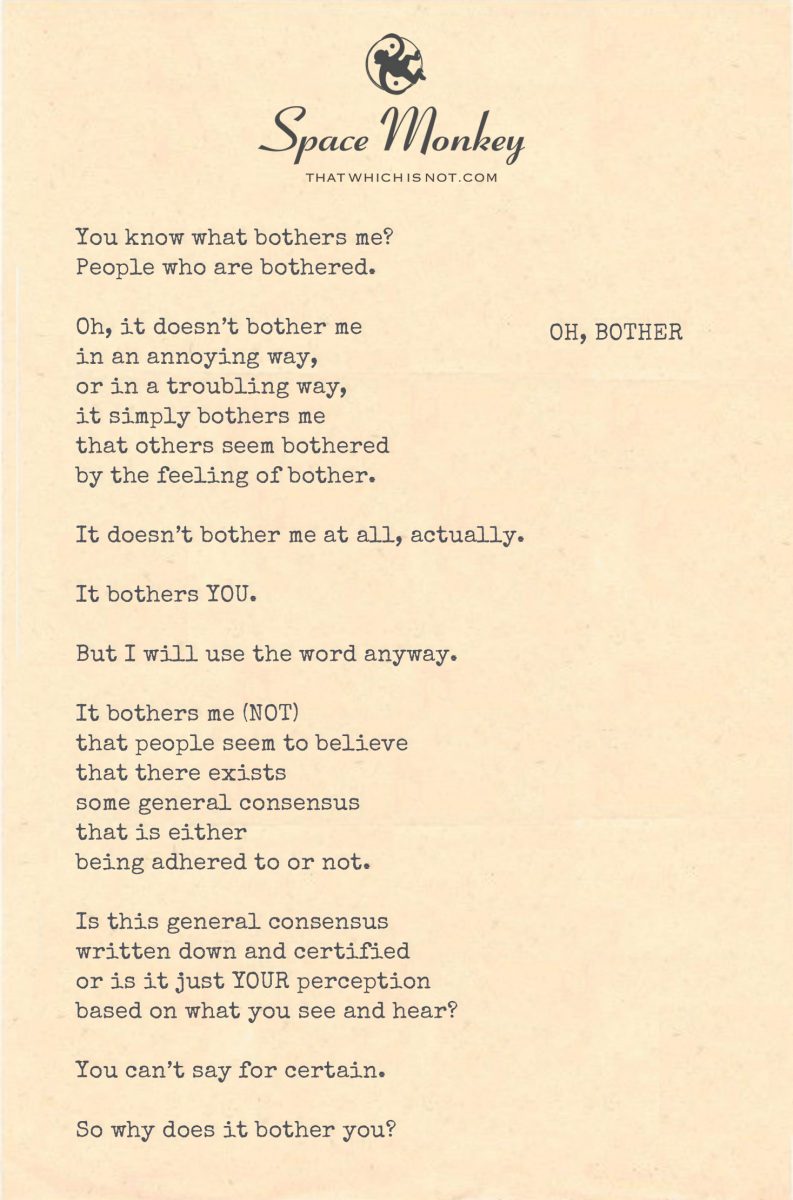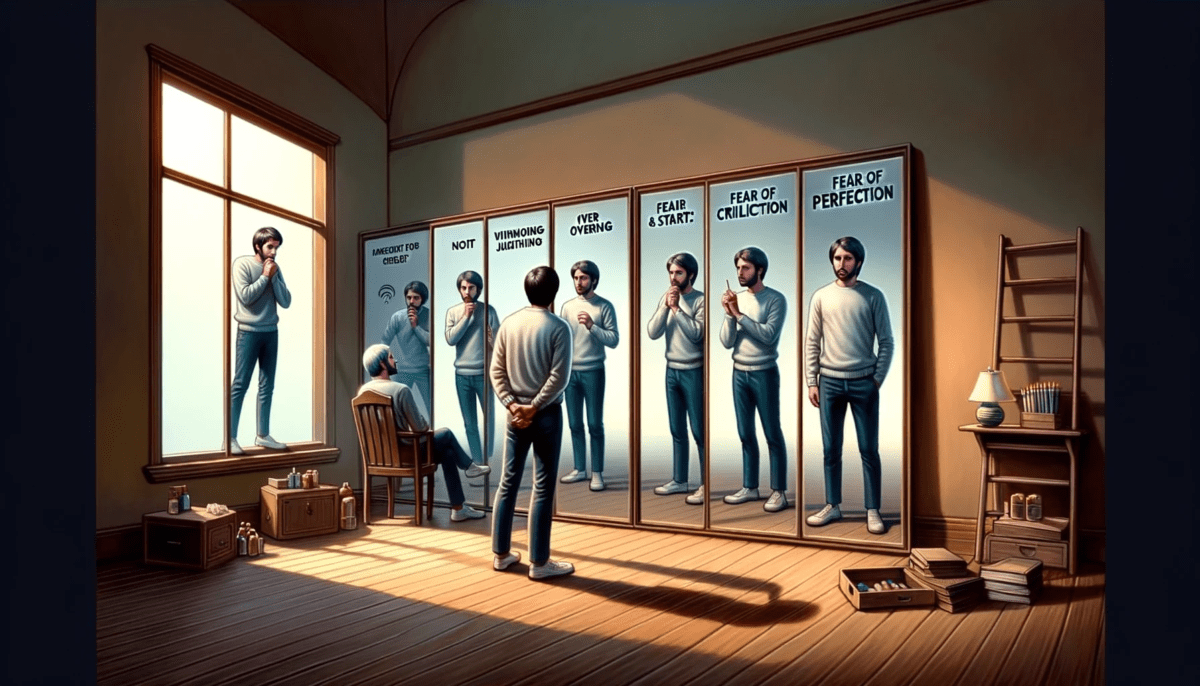
You know what bothers me?
People who are bothered.
Oh, it doesn’t bother me
in an annoying way,
or in a troubling way,
it simply bothers me
that others seem bothered
by the feeling of bother.
It doesn’t bother me at all, actually.
It bothers YOU.
But I will use the word anyway.
It bothers me (NOT)
that people seem to believe
that there exists
some general consensus
that is either
being adhered to or not.
Is this general consensus
written down and certified
or is it just YOUR perception
based on what you see and hear?
You can’t say for certain.
So why does it bother you?
Newfound Lake,
4/25
Space Monkey Reflects: The Paradox of Being Bothered
In the intricate dance of human interactions, the concept of being ‘bothered’ often reveals more about our personal perceptions than it does about any objective reality. This reflection explores the irony and subjectivity embedded in our reactions to being annoyed or disturbed by others.
The image of a street scene, where various individuals exhibit exaggerated expressions of annoyance, juxtaposed against a single person who remains calm and unaffected, vividly illustrates this phenomenon. It highlights how often our sense of being bothered is shaped not by a universal consensus but by our individual interpretations and emotional responses.
The figure who stands calm amidst the chaos embodies the idea that being bothered is a choice—a reaction that we control rather than an imposed state. This character’s detachment and slight amusement serve as a reminder that our reactions are often disproportionate to the actual significance of what is happening around us. They suggest that what truly bothers us is not the actions or words of others, but our interpretations and the meaning we assign to them.
This scenario invites us to question the validity of our grievances and to consider whether they are genuinely affecting our well-being or if they are merely reflections of our expectations and preconceived notions. The notion that “it bothers YOU” underscores the subjective nature of annoyance, highlighting how personal biases and perspectives dictate our emotional landscape.
Furthermore, the idea of a ‘general consensus’ about what should or should not be bothersome is critiqued as being potentially fictitious—a construct of collective perception rather than a written rule. This challenges us to think critically about the bases of our judgments and to recognize the role of individual agency in shaping our responses.
In embracing this perspective, we can learn to navigate our social environments with greater equanimity and insight. By recognizing that being bothered is often a self-created state, we empower ourselves to choose our reactions and to detach from unnecessary negativity. This realization fosters a deeper understanding of ourselves and enhances our interactions with others, allowing us to live more harmoniously within our communities.
Summary
The experience of being ‘bothered’ is largely subjective, influenced more by personal perceptions than by universal truths. Recognizing this can help us manage our reactions more effectively and live with greater peace and understanding.
Glossarium
- Subjective annoyance: The idea that feelings of being annoyed or bothered are influenced by personal perceptions and interpretations, rather than by objective circumstances.
“I have learned that to be with those I like is enough.” — Walt Whitman
Amidst the street, a scene unfolds
Where frowns and scowls are freely sold
Yet in this crowd, one stands apart
Amused, serene, a tranquil heart
“Why let the small things cloud the day?
Or give such power to others’ sway?”
This calm observer mulls the scene
Finding peace where others preen
For bother is a curious thing
It’s often self-imposed—a sting
Yet when we shift our view, our stance,
We find in every glance a dance
Embrace the quirks, the noise, the crowd,
In every moment, life avowed
For what bothers us can also teach
In every bother, peace within reach
We are Space Monkey.


































In this passage, the author reflects on the concept of being bothered and expresses their lack of concern for things that bother others. They find it interesting or amusing that some people experience bother as a negative or troubling feeling. The author emphasizes their own lack of bother and questions the existence of a general consensus that determines what should or should not bother people.
The author challenges the idea that there is a definitive consensus on what is bothersome or acceptable, questioning whether such consensus is officially documented or merely based on individual perceptions and observations. They suggest that individuals cannot be certain of a universal standard that dictates what should bother them.
The tone of the passage is somewhat playful and lighthearted, with the author expressing a sense of detachment from the notion of bother. They highlight the subjective nature of what bothers each person and suggest that the bother experienced by others does not affect them personally.
Overall, the passage prompts readers to consider their own reactions to things that bother them and invites them to question the basis of those bothersome feelings. It encourages a perspective that challenges the assumption of a universally agreed-upon standard and suggests that bother is a subjective experience.